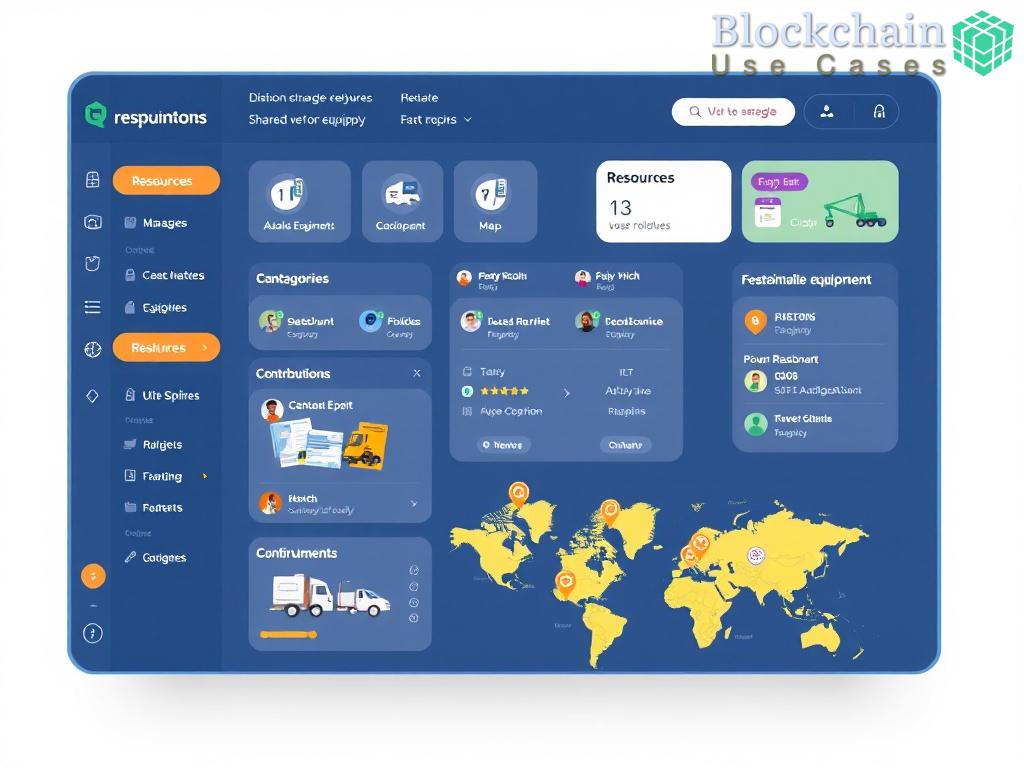Empowering Communities: How Decentralization Transforms Charitable Giving
In a world where community spirit is paramount, decentralized platforms are revolutionizing the way we approach charitable giving. These innovative systems break down traditional barriers, allowing individuals and organizations to collaborate and contribute resources more effectively. With the growing dissatisfaction towards conventional charity models, decentralization emerges as a beacon of hope, empowering communities and enhancing transparency.
Decentralized platforms utilize blockchain technology, ensuring that every transaction is secure and traceable. This transparency not only builds trust among donors but also encourages greater participation from community members who may have previously felt excluded. As we delve deeper into how these platforms are reshaping charitable giving, we uncover the numerous benefits they bring to communities.
Decentralization is not just a buzzword; it holds transformative power for charitable initiatives. By enabling peer-to-peer interactions, these platforms foster a sense of ownership and responsibility among community members. Here are some key benefits:
- Increased Trust: With transparent processes, donors can see exactly where their contributions are going.
- Enhanced Participation: Communities can easily mobilize resources and support causes that matter to them.
- Reduced Costs: By cutting out intermediaries, more funds go directly to the intended projects.
- Flexibility and Adaptability: These platforms can quickly respond to the evolving needs of communities.
These benefits collectively create a more engaged and resilient community, where charitable giving is not just a one-way street but a collaborative effort.
As the concept of decentralized charitable giving gains traction, several platforms have emerged, showcasing how effective this model can be. Let’s take a closer look at a few pioneering examples:
| Platform | Description | Key Features |
|---|---|---|
| Giveth | A platform that connects donors directly with projects. | Transparency, direct funding, community governance |
| BitGive | Utilizes Bitcoin to facilitate donations to global charities. | Blockchain tracking, low fees, international reach |
| GoodDollar | A decentralized basic income project aimed at reducing poverty. | Universal basic income, community funding, sustainable economics |
These platforms exemplify the potential of decentralized models to enhance charitable giving, foster community involvement, and create lasting impact. By supporting these initiatives, individuals can play a pivotal role in transforming their communities through collective action.
Tokenizing Generosity: The Role of Blockchain in Resource Sharing

In the evolving landscape of charitable giving, the concept of tokenization emerges as a powerful tool for enhancing resource sharing within communities. By leveraging blockchain technology, communities can now create digital tokens that represent various forms of resources—be it financial contributions, equipment, or even volunteer hours. This innovative approach not only simplifies the management of shared resources but also fosters a culture of generosity and collaboration among participants.
When we talk about tokenizing generosity, we are essentially introducing a new layer of accountability and engagement in charitable initiatives. Each token acts as a digital representation of goodwill, allowing community members to track their contributions and see how their efforts translate into real-world impact. This visibility is crucial; it transforms the act of giving into a participatory experience where every contributor feels valued and informed.
Tokenization facilitates a more dynamic approach to resource sharing. Imagine a community that has access to various tools and equipment, from gardening supplies to educational materials. By deploying a blockchain-based system, these resources can be tokenized, allowing members to lend, borrow, or contribute to a communal pool easily. This not only maximizes the usage of available resources but also minimizes waste and promotes sustainability.
A key advantage of this system lies in its ability to incentivize participation. Members who lend their equipment can earn tokens that they can later use to access other shared resources. This creates a virtuous cycle of giving and receiving, where the more individuals participate, the richer the community becomes in shared assets. Moreover, with each transaction recorded on the blockchain, the community can ensure that every resource is accounted for, further bolstering trust among members.
One of the standout features of using blockchain in resource sharing is the inherent transparency it offers. Traditional charitable platforms often face criticism regarding the allocation of resources and potential mismanagement. Blockchain addresses these concerns head-on by providing a permanent, immutable record of all transactions. Community members can see how resources are being utilized, which not only builds trust but also encourages responsible management of shared assets.
As more communities adopt these decentralized models, we can expect to see a shift in the narrative surrounding charitable giving. The combination of tokenization and transparency has the potential to dismantle long-standing barriers, inviting a broader range of participants into the fold. Individuals who may have felt hesitant to contribute due to concerns over misallocation can now engage with confidence, knowing that their efforts will be tracked and celebrated.
From Local to Global: Scaling Impact with Distributed Platforms

The evolution of decentralized platforms is not just a trend; it is a significant shift in how we perceive and implement charitable initiatives. As these platforms gain momentum, they are proving capable of transforming local efforts into global movements. This transformation is crucial, as it enhances the potential for impactful collaboration and resource sharing across borders. By leveraging technology that fosters community engagement and transparency, decentralized systems are paving the way for a more inclusive and effective charitable landscape.
Building Bridges Across Communities is one of the most compelling features of decentralized platforms. They enable local initiatives to connect with like-minded communities globally, creating a network of support that transcends geographical boundaries. Imagine a small community garden project in a rural area partnering with urban farms around the world. Each locality brings unique resources and knowledge, enriching the overall project and fostering a sense of global solidarity. This interconnectedness amplifies the reach and effectiveness of charitable efforts, allowing them to overcome limitations that once stifled growth and collaboration.
Empowering Local Voices on a Global Stage is another significant advantage of these platforms. Traditionally, larger organizations dictated the terms of charitable giving, often sidelining local communities. However, decentralized platforms democratize this process by giving power back to the grassroots level. Community members can propose projects, contribute resources, and directly manage funds, ensuring that initiatives address the specific needs of their environments. This empowerment not only boosts local morale but also attracts attention from global donors looking for authentic, impactful projects, thus enhancing funding opportunities for local initiatives.
Moreover, the scalability of decentralized platforms is unparalleled. By utilizing blockchain technology, these platforms can efficiently manage vast amounts of transactions without the need for a centralized authority. This means that as a project grows, it can seamlessly integrate more contributors and resources. Imagine a situation where a community project in one country gains international recognition and support, leveraging the power of decentralized platforms to attract donations, volunteers, and even expertise from around the globe. This scalability is crucial for sustaining long-term initiatives and ensuring they can adapt to changing circumstances and needs.
In essence, the journey from local to global is no longer a distant dream; it is a reality being shaped by decentralized platforms. These systems not only redefine how we think about charity but also inspire a collective movement towards more responsible and impactful giving. As communities harness the power of technology, the possibilities for collaboration and resource sharing are endless, offering a brighter future for charitable initiatives worldwide.
Trust & Transparency: Building Credibility in Charitable Resource Management
As the landscape of charitable initiatives evolves, trust and transparency have emerged as the cornerstones of effective resource management. In a world where donors increasingly seek accountability, decentralized platforms offer a fresh approach that revitalizes confidence in charitable organizations. By employing blockchain technology, these platforms create an environment where every transaction is not just recorded but is visible and verifiable to all participants. This shift towards transparency is not merely a technical enhancement; it represents a profound cultural change in how communities engage with charitable causes.
At the heart of decentralized platforms lies an unwavering commitment to transparency. Unlike traditional charitable organizations, where the flow of funds is often opaque, decentralized systems provide an open ledger that tracks every donation and its utilization. This means that community members can see exactly how their contributions are being spent, fostering a sense of ownership and responsibility. Imagine a scenario where a community project receives funding for educational supplies; through these platforms, contributors can track the purchase and distribution of resources in real-time. This level of oversight not only builds trust among donors but also encourages a culture of accountability within organizations.
Furthermore, the transparency provided by blockchain technology acts as a safeguard against mismanagement or fraud. Because each transaction is immutable and publicly accessible, any discrepancies can easily be identified and addressed. This creates an environment where dishonesty is less likely to thrive, reinforcing the credibility of charitable initiatives.
Building credibility in charitable resource management is not just about technology; it is equally about community engagement. Decentralized platforms empower local voices, allowing them to participate actively in decision-making processes. When community members have a say in how resources are allocated, they feel a deeper connection to the cause. This participatory model fosters a sense of mutual respect and collaboration, essential elements for sustaining trust over time.
Moreover, as more communities engage with these decentralized systems, a ripple effect occurs. Successful projects draw attention, encouraging new participants to join and support initiatives. This collective effort creates an ecosystem of trust, where contributors not only support individual projects but also uplift the broader community through shared values and goals. In this way, the credibility of charitable organizations is continuously reinforced, creating a cycle of trust that benefits everyone involved.
Collaborative Networks: Uniting Efforts for Greater Good
In an age where social responsibility is becoming increasingly imperative, the emergence of decentralized platforms marks a pivotal shift towards collaborative networks that unite diverse efforts for the greater good. These platforms not only democratize the process of resource sharing but also create a vibrant ecosystem where communities can pool their strengths and resources to tackle pressing social challenges. The synergy created by these networks is transforming the charitable landscape, enabling individuals and organizations to collaborate seamlessly across borders.
At the heart of collaborative networks lies the concept of collective intelligence—a powerful force that leverages the unique skills and perspectives of community members. By utilizing decentralized platforms, participants can share their expertise, insights, and resources, leading to innovative solutions that address complex societal issues. For example, a local community facing food insecurity can connect with urban farmers, nutritionists, and volunteers through these platforms, creating a comprehensive approach to tackling hunger.
Trust is the glue that holds collaborative networks together. As decentralized platforms promote transparency through blockchain technology, participants can engage with confidence, knowing that their contributions are making a difference. This transparency fosters a culture of collaboration where individuals feel empowered to take initiative and share resources without fear of misallocation. As relationships deepen within these networks, the collective impact grows exponentially, leading to more effective and sustainable charitable initiatives.
Understanding the essential traits that contribute to the success of collaborative networks can inspire more communities to engage in these transformative platforms. The following list outlines the key characteristics:
- Inclusivity: Embracing diverse perspectives and backgrounds encourages creativity and innovation.
- Effective Communication: Open lines of communication enhance collaboration and ensure that all voices are heard.
- Shared Goals: Establishing common objectives aligns efforts and motivates participants to work together towards a common mission.
- Decentralized Decision-Making: Empowering community members to participate in decision-making fosters ownership and accountability.
- Continuous Learning: Encouraging feedback and adaptation promotes growth and resilience within the network.
As we continue to witness the rise of decentralized platforms, the potential for collaborative networks to unite efforts for the greater good is boundless. By harnessing the power of community collaboration, we can create a brighter future where charitable resources are managed more effectively, and the impact of collective action resonates far and wide.





